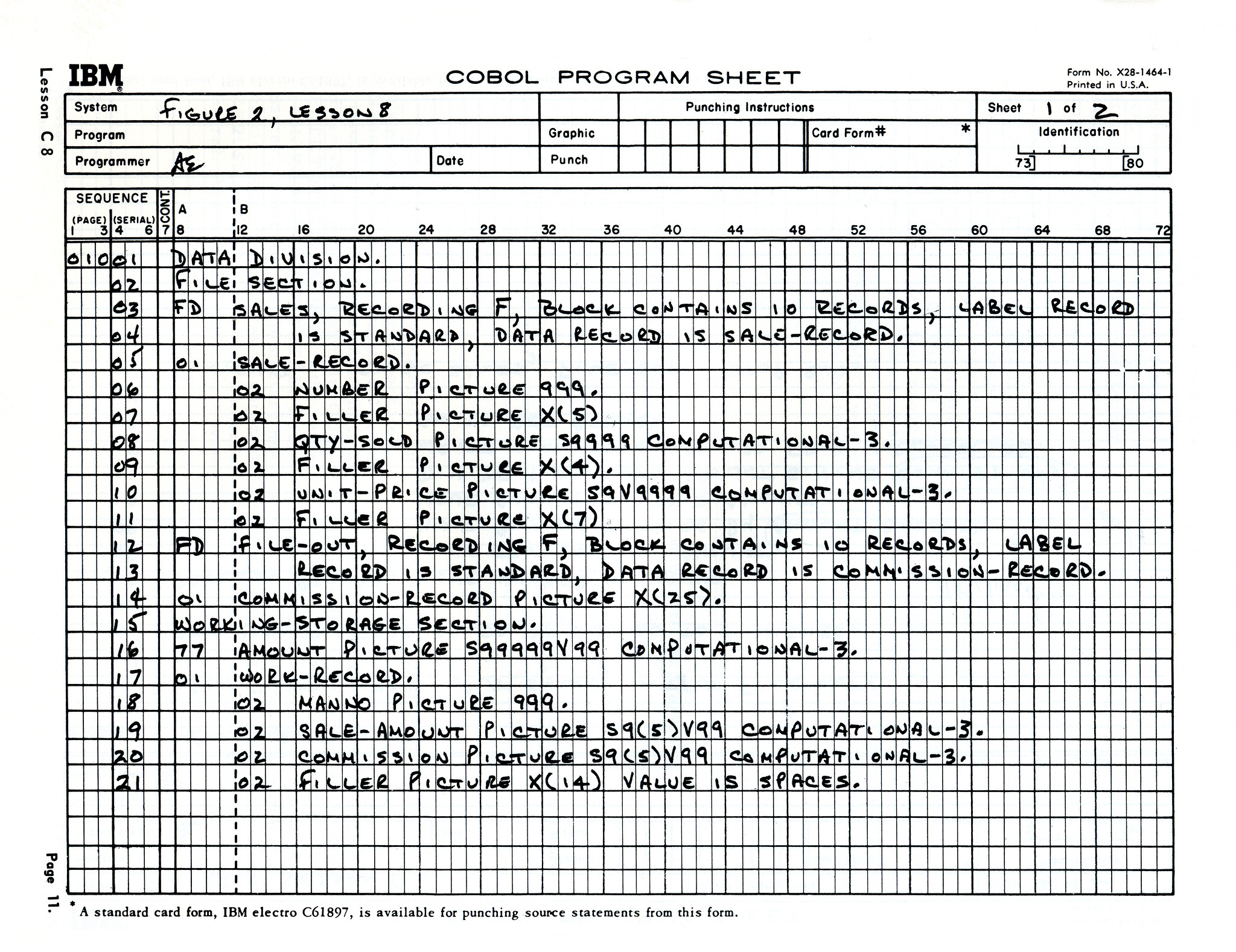Information technology modernization specialist Rocket Software Inc. is integrating generative artificial intelligence and adding support for Arm processors in its line of Cobol modernization products.
The update, announced Tuesday, aims to refresh Cobol-based systems, which are still used by an estimated 90% of Fortune 500 companies, without the risks and costs of complete rewrites.
Although Cobol use peaked in the 1970s, it remains a staple of mission-critical enterprise applications. By various estimates, between 220 billion and 800 billion lines of the code are still in use today. The official standard has continued to be updated with features such as object orientation and support for software containers. The most recent version was released in 2023.
The three components at the heart of Rocket Software’s enhancements give developers access to modern development environments, cloud and container compatibility and AI-powered code analysis.
Visual Cobol standardizes Cobol development alongside other languages and integrates into familiar IDEs such as Visual Studio, Eclipse and VS Code. Rocket Software said developers can use contemporary syntax and tools to speed up change cycles and enhance collaboration.
“Visual Cobol is a full development and modernization solution that includes compiler technology, runtime support and integration into industry-standard IDEs,” said Neil Fowler, senior vice president of hybrid cloud engineering at Rocket Software. “Developers can choose their preferred IDE while working with Cobol.”
‘Modernization in place’
Whereas most modernization strategies involve moving to a modern code base, Rocket Software’s approach is what it calls modernization in place, or preserving core business logic while adopting modern constructs like application programming interfaces and integration layers.
“Rewriting core systems is typically risky, expensive and time-consuming, often leading to cost overruns and delays,” Fowler said. “Rocket Software’s approach preserves trusted business logic while enabling it to integrate seamlessly with cloud, APIs and AI.”
The second component, Cobol Server, is a high-performance runtime environment that supports compiled Cobol code on modern infrastructures ranging from mainframes to cloud-native Arm environments.
“Cobol Server provides the runtime environment for Cobol applications, running compiled Cobol code at native performance, not interpreted,” Fowler said. “It can be thought of as the Cobol equivalent of the Java Runtime Environment.”
The server supports modern syntax updates such as local variables, parameterized sections and object-oriented extensions, which make Cobol more accessible for today’s developers, Fowler said.
AI-supported coding
Rocket Software has also infused generative AI capabilities into Cobol Analyzer, a toolset for analyzing, understanding and modernizing large-scale Cobol applications. The company said developers, even those unfamiliar with Cobol, can quickly understand and modify codebases through AI-driven explanations and refactoring suggestions.
“It lowers the barrier to entry dramatically,” Fowler said. “Developers can open Cobol projects in Visual Studio or VS Code, use generative AI to quickly understand and navigate code, refactor business logic and deploy through a modern DevOps pipeline.”
The addition of generative AI also addresses one of the most pressing issues surrounding Cobol: the dwindling pool of skilled developers. Organizations can use Cobol Analyzer to train a broader range of engineers to manage and evolve existing systems.
Expanded support for Arm processors allows Cobol applications to run on cloud-native architectures built on the energy-efficient processors. “This future-proofs operations without requiring changes to the application itself,” Fowler said.
Rocket Software is helping ensure Cobol’s longevity through its NextGen Academy in the U.K., offering training in enterprise software development with a focus on Cobol. An accompanying online course teaches Cobol fundamentals in one day.
Cobol program sheet image/Flickr CC
Support our mission to keep content open and free by engaging with theCUBE community. Join theCUBE’s Alumni Trust Network, where technology leaders connect, share intelligence and create opportunities.
- 15M+ viewers of theCUBE videos, powering conversations across AI, cloud, cybersecurity and more
- 11.4k+ theCUBE alumni — Connect with more than 11,400 tech and business leaders shaping the future through a unique trusted-based network.
About News Media
Founded by tech visionaries John Furrier and Dave Vellante, News Media has built a dynamic ecosystem of industry-leading digital media brands that reach 15+ million elite tech professionals. Our new proprietary theCUBE AI Video Cloud is breaking ground in audience interaction, leveraging theCUBEai.com neural network to help technology companies make data-driven decisions and stay at the forefront of industry conversations.










